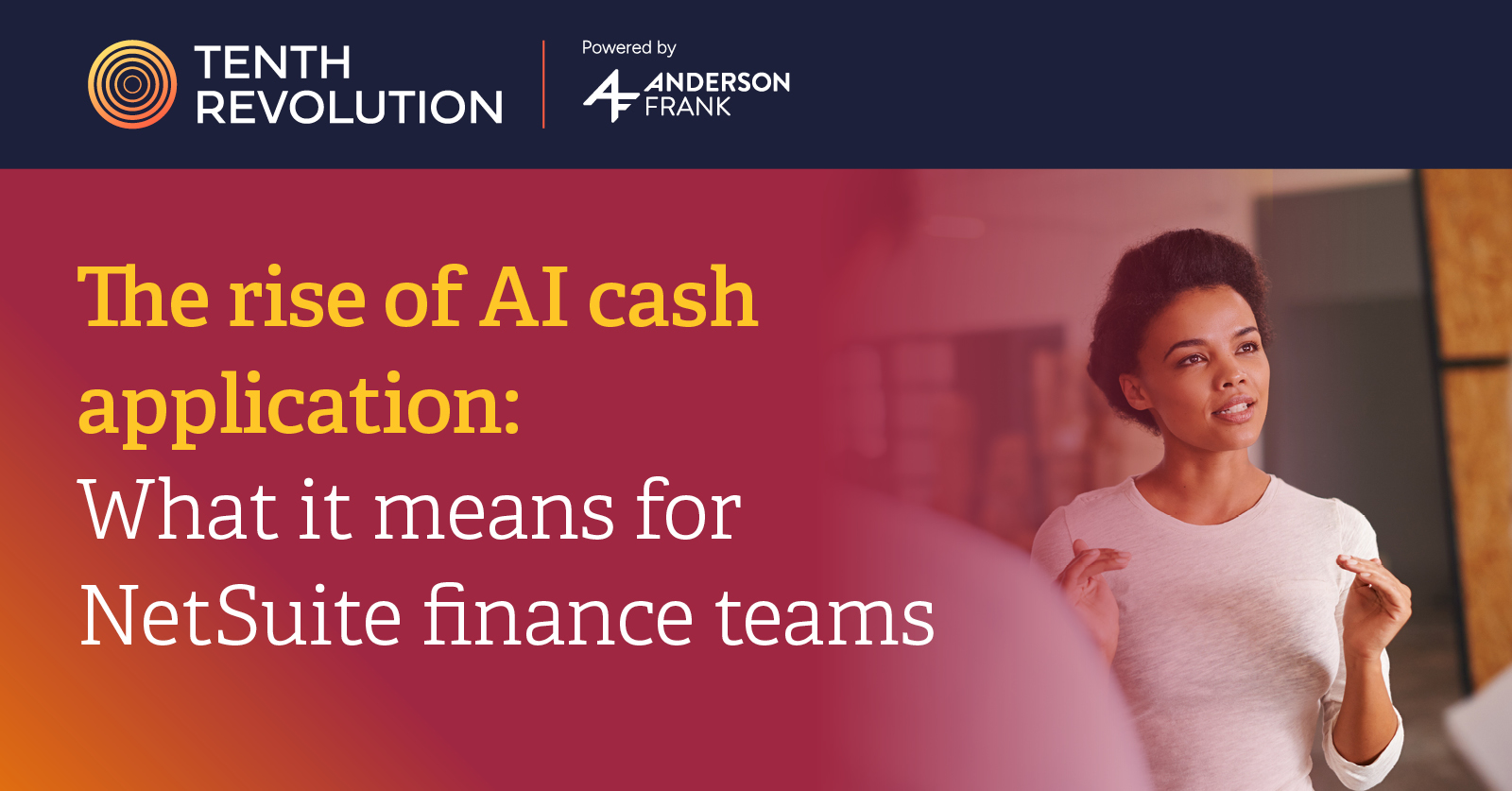
Finance leaders have long struggled with the time and effort required to manage collections, apply payments, and keep cash positions accurate.
Invoices pile up, payments arrive in different formats, and staff spend hours reconciling accounts manually. For NetSuite users, this is starting to change.
NetSuite is embedding generative and predictive AI capabilities into its core workflows, and one of the clearest examples is AI cash application. Together with tools like Text Enhance for financial commentary and Predictive Planning for forecasts, these capabilities are moving from pilot projects to mainstream adoption. The finance office is beginning to operate with less manual intervention and greater strategic oversight.
Why AI cash application matters
At its core, cash application means matching incoming payments to open invoices. It’s simple in theory but complex in practice—customers pay in partial amounts, reference incorrect invoice numbers, or bundle payments across multiple accounts. Traditionally, finance staff have had to chase down these mismatches, slowing down cash recognition and creating friction in the order-to-cash cycle.
AI cash application inside NetSuite uses machine learning to automatically match payments to invoices based on historical patterns, customer behavior, and contextual data. This reduces manual intervention while improving accuracy.
For a mid-sized business managing thousands of invoices per month, the result could be a reduction in days sales outstanding (DSO) and a much faster view of cash availability.
Anderson Frank provides NetSuite talent who can help finance teams implement AI cash application workflows, ensuring the technology delivers value quickly and securely.
Beyond cash application: AI-native NetSuite in action
AI cash application is part of a broader AI-native shift across the NetSuite platform. Finance and operations leaders are beginning to see:
- Text Enhance for reporting: Generative AI drafts management commentary, board notes, and customer-facing messages, giving leaders more time to refine and interpret insights rather than start from scratch.
- Predictive Planning: Machine learning analyzes historical data and external drivers to forecast revenues, expenses, and cash flow. Finance teams can run more agile scenario planning and react faster to market shifts.
- Proactive anomaly detection: AI can surface unusual patterns in transactions or spending, helping leaders spot risks or opportunities early.
When combined, these features transform NetSuite from a transactional ERP into a predictive and generative system that supports smarter, faster decision-making.
Anderson Frank offers NetSuite specialists who can configure Text Enhance, Predictive Planning, and AI cash application in a way that aligns with business processes, not just technology requirements.
Executive benefits of AI-native NetSuite
For CFOs and finance executives, adopting these tools provides tangible advantages:
- Faster cash visibility: Payments are applied more quickly, giving treasury teams an up-to-date view of liquidity.
- Efficiency gains: Staff spend less time on low-value tasks like data entry and more on strategy.
- Improved accuracy: AI reduces misapplied payments and manual reconciliation errors.
- Better decision-making: Predictive insights and generative commentary help executives prepare board packs, forecasts, and strategies with more confidence.
- Scalable finance operations: Teams can handle growth in transaction volume without proportionally increasing headcount.
What leaders should do next
Executives exploring AI-native NetSuite capabilities should:
- Start with cash application as an entry point—it delivers clear ROI and immediate efficiency.
- Pilot predictive planning in one area, such as revenue forecasting, to build confidence in AI-driven insights.
- Use Text Enhance to accelerate routine communications and board commentary, keeping human oversight for accuracy.
- Train finance teams to work with AI outputs, emphasizing validation and governance.
- Expand gradually, layering in anomaly detection and advanced forecasting as teams mature.
From pilots to practice
Generative and predictive AI in NetSuite is no longer experimental. With features like AI cash application, finance leaders are seeing how automation can shorten the close, improve accuracy, and unlock working capital. The organizations that embrace these capabilities early are building finance functions that scale with growth, not headcount, while strengthening their role as strategic partners to the business.



